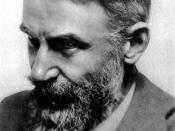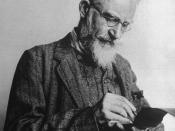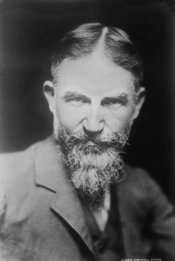The author
George Bernard Shaw -he later dropped the name George- was born in Dublin in 1856, the third and youngest child of an alcoholic father and an undomestic mother. He developed an interest in literature, music and painting at a very early age, but was never enabled to go to university. At the age of fifteen he became an apprentice and during he stay there he started writing short literary articles for newspapers and magazines, with little success. In 1876 he moved to London with his parents and tried to earn a living as a writer, but at times he still needed his parents' financial support. During this period he wrote his first five novels, none of them very successful; the first one was never published and the other four were sold to periodicals, to be published as serials.
In 1884 he joined the Fabian Society, an utopian movement that was trying to establish a socialist society through co-operation with the 'bourgeois' classes.
He wrote a great number of speeches, pamphlets and articles for the Fabians, and in 1889 he edited the Fabian Essays, an import document in the history of British socialism. His work with and for the Fabian Society continued until the end of his life, during which period he wrote a number of important socialist articles, such as the anti-war pamphlet 'Common sense about the war' in 1914 and the 'Woman's guide to Socialism and Capitalism' in 1928.
Between 1885 and 1898 he wrote many critical reviews on literature, art and music for a number of important magazines. During this period he started writing his first play, 'Widowers' Houses', inspired by the plays of the Norwegian playwright Hendrik Ibsen, whose social awareness and nonconformism appealed more to Shaw than the fashionable hypocritical drama of those days.


